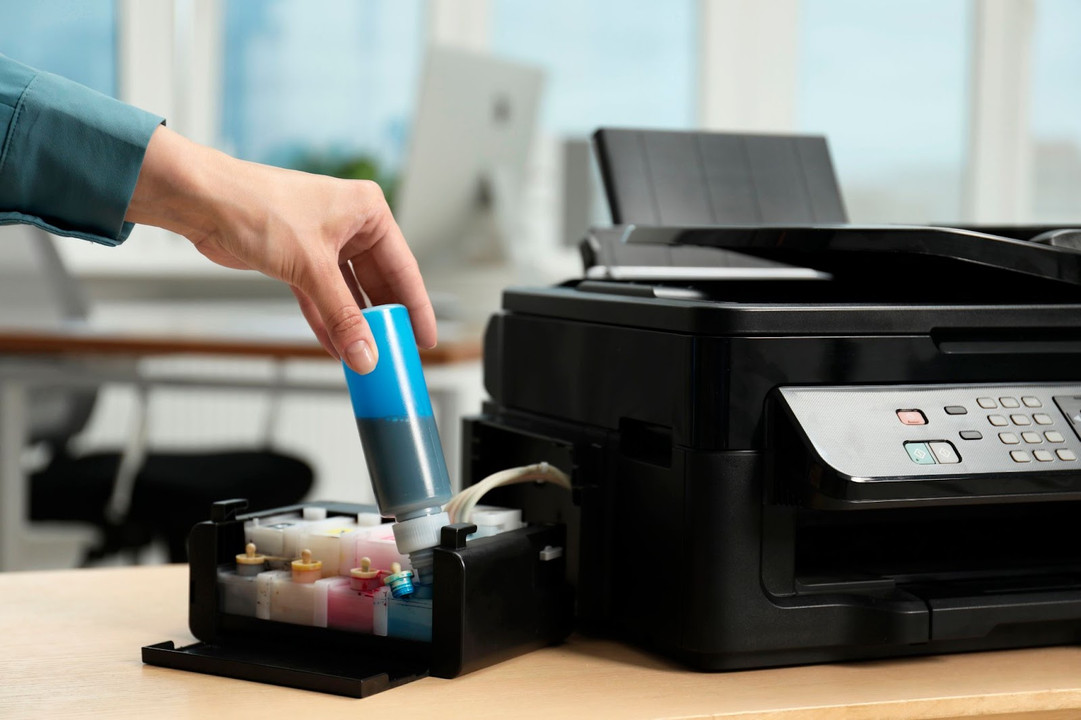HP Accused of Monopolising Ink Sales While Price Hiking in Latest Lawsuit Against Company
HP has been under fire over the past few years for some of its questionable business strategies directly affecting customers and competition, with the latest lawsuit targeting its recent attempts to monopolise ink sales. The company introduced a firmware update to their e-series LaserJet printers in 2022 making the device only compatible with HP-branded replacement ink cartridges without informing customers that third-party ink would disable their printer. Customers simply hit accept on the firmware update and their printer functionality was changed forever.
The company marketed the ink block as a security feature, called ‘Dynamic Security’. Following the backlash of their attempts to cage the ink cartridge aftermarket, HP has been forced to discontinue their e-series LaserJet printers, and they have simultaneously cancelled their online-only ink subscription.
The lawsuit is not the first litigation against HP’s Dynamic Security for locking printers using non-HP branded ink, it is yet another example of customers becoming disgruntled with the brand. This particular litigation is seeking class-action certification, aiming to have HP disable its printer firmware updates that block the use of ink that doesn’t bear the HP chip, as well as monetary damages pushing greater than USD 5 million.
As of now though, HP will stop producing and selling the e-series LaserJet printers, but they will not recall existing printers in the wild. Current customers of this series will have to continue using the printer and its HP-ink required features until further advancements in the case. No software updates that will enable the free use of replacement ink cartridges have been announced.
HP+, Instant Ink and HP-ink-only printers
The intricacies of HP’s product and service offerings can appear confusing. HP+ is the software upgrade that enables smart printing, with advanced features, cloud printing and enhanced security. The latter feature is responsible for the backlash of the e-series LaserJet printer, as HP has conflated security as a chance to upsell. Instant Ink, on the other hand, is the ink subscription service that delivers HP ink cartridges routinely for a recurring fee.
HP+ and Instant Ink are often confused with each other, with offerings for HP+ activating to include Instant Ink, keeping customers trapped in a HP product line until they change printers.
HP’s circular economy
Much of HP’s modern business strategy focuses on customer retention by locking in printer customers. However, they have effectively monopolised the aftermarket through this specific firmware. The danger with this type of competitor outlawing is that when they have a monopoly of the market, they have unrestricted access to hike prices without direct competition. It directly targets the consumer market, and alas, HP has been sued for blocking third-party replacement ink cartridges while raising prices on its ink immediately after its firmware update.
Instant Ink gets the scrap
HP simultaneously announced the Instant Ink service would be cancelled, which was problematic for some customers but still an optional service. The company will stop marketing this subscription service later in the year and it will become unavailable to new customers, but existing Instant Ink subscribers’ service will continue.
A HP representative speculated that customers were conflating Instant Ink with HP+, with some customers believing they needed to sign up HP+ to receive Instant Ink, so it was cancelled to simplify things for end-users. Customers can opt in or out of Instant Ink, unlike the necessity for HP-branded ink cartridges, making this decision more interesting, and potentially one that was made to bring clarity to customers of a company under legal eye. If this is the case, this appears to be an overcorrection for a service that wasn’t immoral, only faulty.
Grounds for litigation
HP issued the firmware update in 2022, whereby their printer functionality was altered to only accept HP ink. Printer users weren’t informed that accepting these firmware updates would disable and could damage the features of the printer when using third-party ink.
Making customers dependent on a brand is not a new or illegal business activity when done through a quality product. Where HP went wrong was the altering of printer functionality after customers had purchased a printer with particular functionality, increasing the price of ink in the same period and the lack of visibility of what these firmware updates would mean for customers.
HP also encouraged customers to register their printers, which they then capitalised on by releasing updates such as this to alter the functionality of their printers. What’s further confusing is that the use of non-HP ink cartridges doesn’t disqualify HP’s printer warranty.
Any strong, modern company moves with the times, progressing their products with technical advancements that make the end-user experience better. But HP continues to offer these updates as a blanket over alarming features that keep customers tied to their products, of which they then have free reign to price as they wish.
The lawsuit builds its case on earlier pending cases accusing HP of deceptive practices involving its ink cartridges. If it were the first case of this unlawful market behaviour, or if HP hadn’t declared pride in their strategy, customers would be more willing to mark this as a mishap. However, HP shows no signs of correcting its approach to customer retention and raises red flags for existing and new customers.
Explore Popular Articles
-
OKI MC554dnw vs. Competitors: 2026 Office Printer Comparison
30th Jan 2026OKI MC554dnw vs. Competitors: 2026 Office Printer Comparison The OKI MC554dnw is designed to replac
-
Essential Maintenance Tips for Sublimation Printers
23rd Jan 2026Sublimation printers are powerful tools capable of creating vibrant, long-lasting prints. But like a
-
Why Is My Printer Printing Blank Pages?
22nd Jan 2026What a head scratcher — your desktop printer is printing blank pages! Whether it’s a last-minute wor




